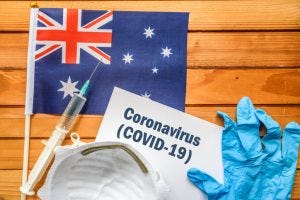
A part-CEPI funded COVID-19 vaccine will be made by CSL at its site in Melbourne, Australia and will incorporate the MF59 adjuvant made by CSL subsidiary Seqirus.
In January, the University of Queensland (UQ), Australia received funding of up to $10.6 million from the Coalition for Epidemic Preparedness Innovations (CEPI) to help develop its vaccine against COVID-19, caused by the novel coronavirus (SARS-CoV-2).
The candidate is based on proprietary the University’s proprietary “molecular clamp” vaccine platform, a technology that aims to provide stability to the viral protein that is the primary target for our immune defense, allowing the speedy generation of vaccines for viruses such as influenza, Ebola, Nipah and MERS coronavirus.

Image: iStock/mirsad sarajlic
UQ began developing its COVID-19 vaccine in January and achieved proof-of-concept just three weeks later. The molecular clamp technology locks the ‘spike’ protein into a shape which allows the immune system to be able to recognize and then neutralize the virus.
Now the project has progressed with vaccine manufacturer CSL joining the collaboration, adding funding to provide support for an upcoming Phase I study and adding industrial-scale manufacturing. Cytiva is also involved in the program.
Development and initial manufacturing will take place at CSL’s recombinant manufacturing facilities in Australia with support from Seqirus’ global vaccine research team. Fill and finish activities will take place at Seqirus’ facilities in Parkville, Melbourne, Seqiris, a subsidiary of CSL that is supplying the adjuvant MF59 for this project, told this publication.
“Further scale-up of production will be achieved in partnership with a contract manufacturer, supplying up to 100 million doses during 2021. We are in discussion with potential partners regarding production for a number of CSL’s Covid-19 response programs.”
Seqirus’s adjuvant
Seqirus’ adjuvant MF59 is a squalene-based oil-in-water emulsion that Seqirus uses in both seasonal and pandemic influenza vaccines.
“Squalene is a naturally occurring oil found in humans, animals and plants,” the firm said. “To manufacture MF59, we combine squalene with pharmaceutical-grade water and other excipients, apply a process of high-shear mixing, known as microfluidisation, and undertake a number of incrementally finer filtration steps to create a stable and sterile adjuvant which can be used in vaccine formulation.”
The adjuvant is used in Seqirus’ seasonal influenza vaccines to enhance the immune system’s response to the antigen in the vaccine.
“Preclinical studies have shown that the University of Queensland candidate vaccine combined with the Seqirus MF59 adjuvant can raise high levels of antibodies that can neutralize the virus in a cell culture model. At this time, further preclinical studies are underway to understand if these antibodies can neutralize the virus in living biological organisms,” the firm said.
“We have sufficient MF59 capacity at our Liverpool (UK) and Holly Springs (US) sites to meet the requirements for our seasonal influenza vaccines and to manufacture hundreds of millions of doses for COVID-19 vaccines, with the potential for further expansion capacity as needed.”
About the Author
You May Also Like

schedl_b_and_w.jpg?width=100&auto=webp&quality=80&disable=upscale)
schedl_b_and_w.jpg?width=400&auto=webp&quality=80&disable=upscale)


